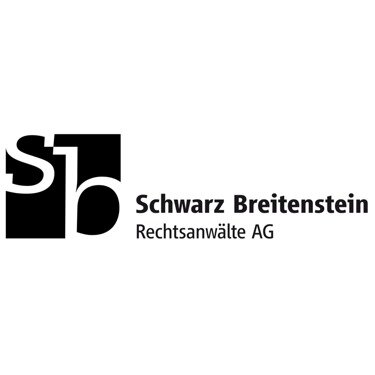Best Project Finance Lawyers in Switzerland
Share your needs with us, get contacted by law firms.
Free. Takes 2 min.
Or refine your search by selecting a city:
List of the best lawyers in Switzerland
About Project Finance Law in Switzerland
Project finance is a specialized area of law that involves the funding of large-scale projects based on the project's future cash flows, rather than the balance sheets of the project sponsors. In Switzerland, project finance is a well-developed field commonly used for infrastructure, energy, transport, and public-private partnership ventures. Legal frameworks and procedures ensure secured, effective, and transparent financial structuring for both domestic and cross-border projects. Switzerland's stable legal system, advanced banking sector, and favorable economic environment make it an appealing location for project finance deals.
Why You May Need a Lawyer
Legal assistance in project finance is crucial to manage the complex web of financial, regulatory, contractual, and environmental risks that arise during large projects. You may need a lawyer if you are:
- Negotiating and drafting project agreements among multiple parties
- Structuring project finance facilities or bank loans
- Seeking compliance with Swiss and international regulations
- Dealing with cross-border tax issues or currency exchange controls
- Addressing disputes over risk allocation, contract performance, or guarantees
- Ensuring compliance with environmental and permitting requirements
- Protecting stakeholder interests or managing legal due diligence
A qualified attorney helps ensure your project is legally secure and financially viable, and that all relevant aspects of Swiss law are properly navigated.
Local Laws Overview
Swiss project finance operates within a reliable commercial and financial legal landscape, which includes key elements such as:
- Contract Law: Swiss contract law, rooted in the Swiss Code of Obligations, governs all agreements including loan and security documentation.
- Security Interests: Parties often use pledges, assignments, and other forms of collateral as security for financiers. Swiss law requires strict adherence to formalities for enforceability.
- Banking Regulation: Financial activities are regulated by the Swiss Financial Market Supervisory Authority. Some transactions may trigger licensing or reporting requirements.
- Taxation: Switzerland offers an attractive tax regime, but cross-border projects must account for double taxation treaties and withholding taxes.
- Permitting and Licensing: Infrastructure and energy projects typically require multiple permits from cantonal and federal authorities.
- Environmental Law: Swiss environmental regulations are robust, especially for energy, transport, and construction projects. Non-compliance can delay or derail projects.
- Public-Private Partnerships (PPPs): PPP projects are overseen by both public procurement rules and public law considerations at federal and cantonal levels.
Swiss courts are generally efficient, and arbitration is a popular alternative dispute resolution method for complex project finance disputes.
Frequently Asked Questions
What types of projects are typically financed through project finance structures in Switzerland?
Common examples include infrastructure (roads, tunnels, airports), renewable and conventional energy plants, utilities, transport networks, and public service projects.
Is it possible to involve international lenders or investors in Swiss project finance transactions?
Yes, Switzerland is open to foreign investment and regularly sees participation from international banks, export credit agencies, and institutional investors.
What security interests can be established under Swiss law?
Swiss law allows pledges over movable assets, mortgages on real estate, assignment of receivables, and share pledges. Each form has specific documentation and registration requirements.
What are the main risks in Swiss project finance deals?
Risks may include regulatory delays, changes in law, construction or operational failures, currency risks, and revenue shortfalls, all requiring careful contract negotiation and mitigation structures.
How is project finance different from corporate finance?
Project finance is structured around the future cash flows and assets of the specific project, while corporate finance relies on the overall creditworthiness and assets of the company or sponsor.
Are there typical contract structures used in Swiss project finance?
Yes, common agreements include concession agreements, engineering procurement and construction (EPC) contracts, operation and maintenance (OandM) agreements, and multiple finance and security documents.
How are disputes generally resolved in project finance transactions?
Disputes are often resolved through arbitration, which is favored for its confidentiality, flexibility, and enforceability of awards in Switzerland.
What role do public authorities play in project finance?
Public authorities may grant concessions, issue necessary permits, oversee compliance, and sometimes act as contractual counterparties in public-private partnerships.
Are there any restrictions on foreign lenders taking security over Swiss assets?
Foreign lenders can generally take security over Swiss assets, but there may be practical considerations such as notary involvement, registration requirements, and certain sector-specific limits.
What due diligence is required before closing a project finance transaction?
Extensive due diligence is required, covering legal, financial, technical, regulatory and environmental aspects, to identify risks and ensure compliance with all relevant Swiss laws.
Additional Resources
Here are some useful organizations and resources for project finance in Switzerland:
- The Swiss Financial Market Supervisory Authority (FINMA) - Regulates financial market sectors and activities.
- The State Secretariat for Economic Affairs (SECO) - Oversees economic policy, public procurement, and PPPs.
- Swiss Banking Association - Provides resources and standards related to lending and finance.
- Swiss Arbitration Association - Offers guidance on arbitration procedures for contract disputes.
- Industry associations in energy, transport, and infrastructure fields can also provide sector-specific guidance.
Next Steps
If you need legal help regarding project finance in Switzerland, consider the following steps:
- Identify the nature and scope of your project and legal needs.
- Gather relevant documents such as project plans, contracts, and correspondence.
- Contact a Swiss law firm or lawyer specialized in project finance. Many offer initial consultations to outline your options and estimate costs.
- Discuss your specific goals, timelines, and budget with the lawyer to determine a tailored legal strategy.
- Ensure your lawyer communicates with other professionals involved in your project such as financial advisors and engineers.
- Stay informed about legal and regulatory requirements throughout the project lifecycle, and seek legal support when issues arise or circumstances change.
Having specialized legal guidance from the outset helps minimize risk and ensures the long-term success of your project in Switzerland.
Lawzana helps you find the best lawyers and law firms in Switzerland through a curated and pre-screened list of qualified legal professionals. Our platform offers rankings and detailed profiles of attorneys and law firms, allowing you to compare based on practice areas, including Project Finance, experience, and client feedback.
Each profile includes a description of the firm's areas of practice, client reviews, team members and partners, year of establishment, spoken languages, office locations, contact information, social media presence, and any published articles or resources. Most firms on our platform speak English and are experienced in both local and international legal matters.
Get a quote from top-rated law firms in Switzerland — quickly, securely, and without unnecessary hassle.
Disclaimer:
The information provided on this page is for general informational purposes only and does not constitute legal advice. While we strive to ensure the accuracy and relevance of the content, legal information may change over time, and interpretations of the law can vary. You should always consult with a qualified legal professional for advice specific to your situation.
We disclaim all liability for actions taken or not taken based on the content of this page. If you believe any information is incorrect or outdated, please contact us, and we will review and update it where appropriate.
Browse project finance law firms by city in Switzerland
Refine your search by selecting a city.
















